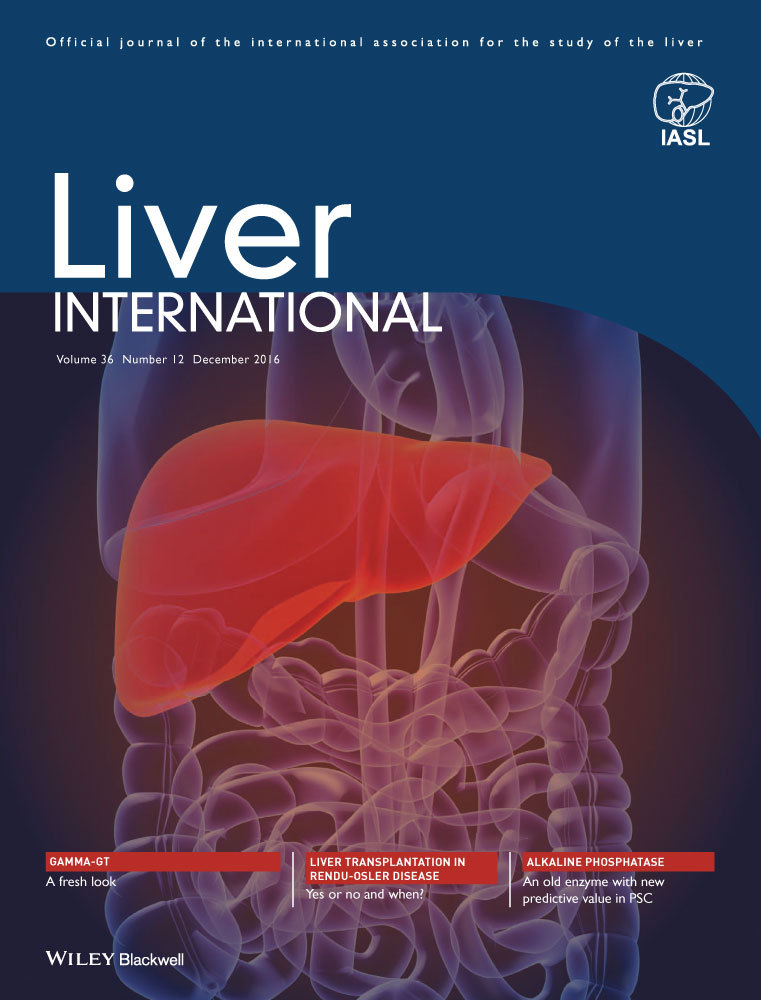Alkaline phosphatase at diagnosis of primary sclerosing cholangitis and 1 year later: evaluation of prognostic value
Abstract
Background
Primary sclerosing cholangitis (PSC) is a slowly progressive liver disease. Reliable biomarkers to predict outcome are urgently needed to serve as surrogate endpoints and/or stratifiers in clinical trials. Reduction in serum alkaline phosphatase (ALP) has been proposed as prognostic surrogate marker in PSC. The aim of this study was to asses if ALP at diagnosis (T0), 1 year later (T1), and percentage change between both time points hold prognostic value, and to determine the optimal threshold.
Methods
We retrospectively collected ALP levels at T0 and T1 for patients included in a large PSC cohort. The association of ALP at T0, T1, and percentage change with the combined endpoint (PSC-related death, liver transplantation) was analysed. Predictive value was determined using C-statistics.
Results
A total of 366 patients were included, of whom 66 (18%) reached an endpoint: 26 (7%) PSC-related death, 40 (11%) liver transplantation. At T0 and T1, 84% used ursodeoxycholic acid. A positive association was observed between level of ALP at T0 and T1 and the hazard of reaching an endpoint, up to values around 2.5 times upper limit of normal (xULN). A larger decrease in ALP between T0 and T1 decreased the event rate. A range of thresholds (0.5–3×ULN) with about similar C-statistics was found. In this cohort, the optimal threshold was 1.3×ULN at T1.
Conclusion
ALP can be used to discriminate between PSC patients with a good and a poor prognosis. These findings indicate that ALP can serve as stratifier, and potentially as surrogate endpoint for clinical trials in PSC.




